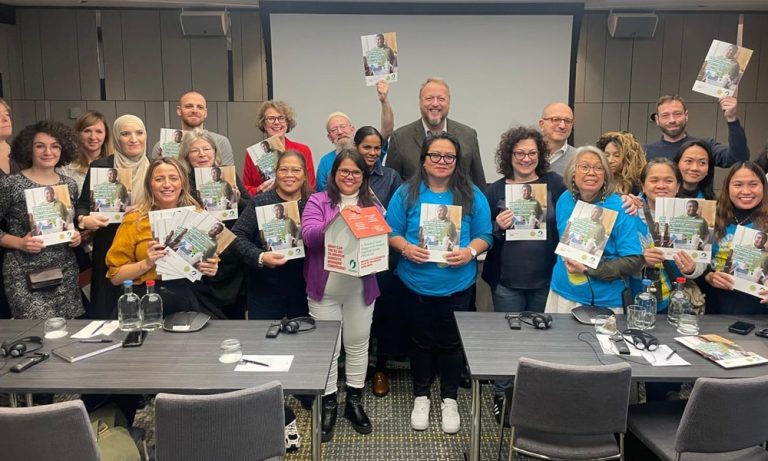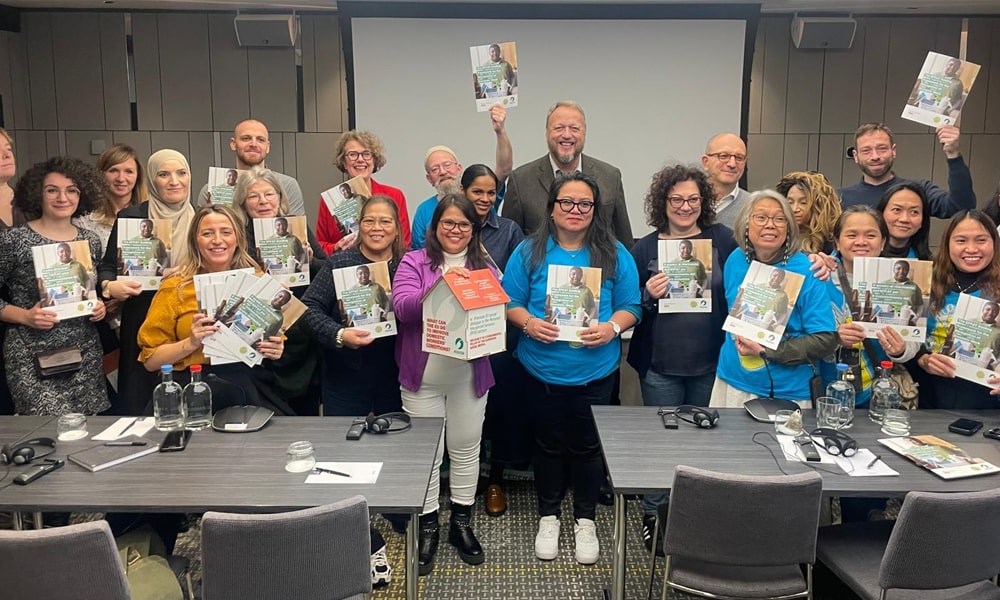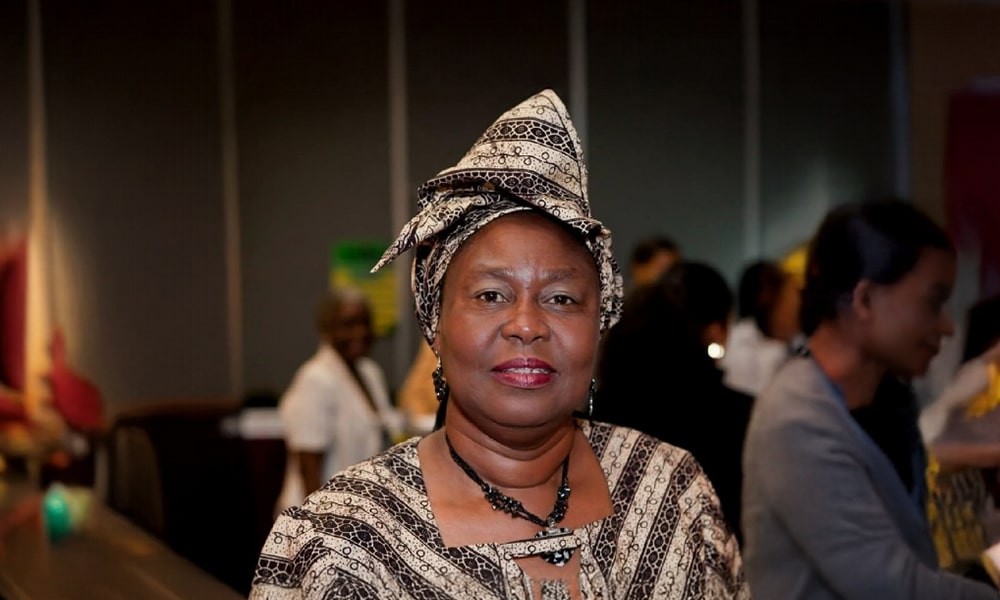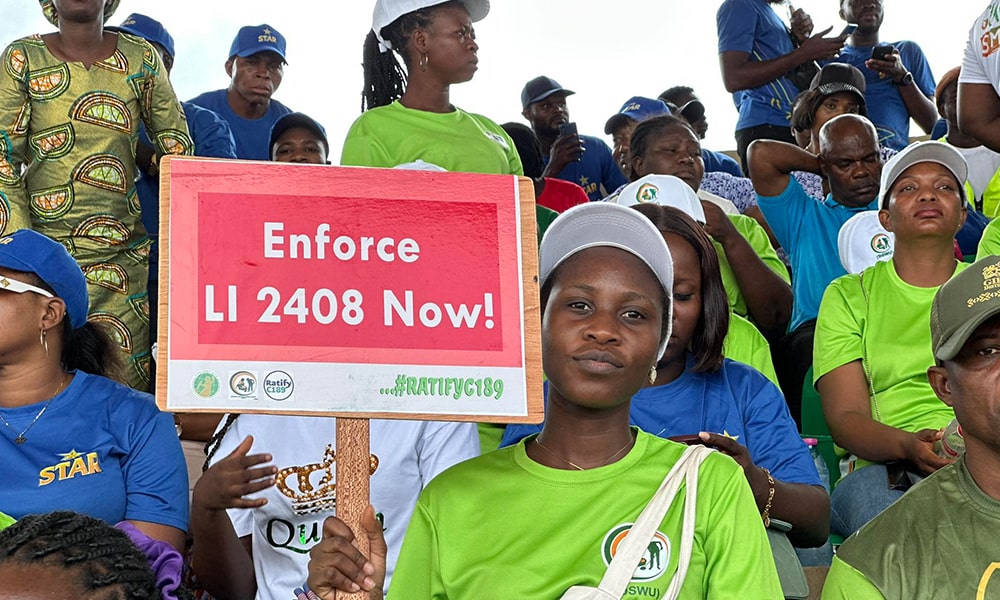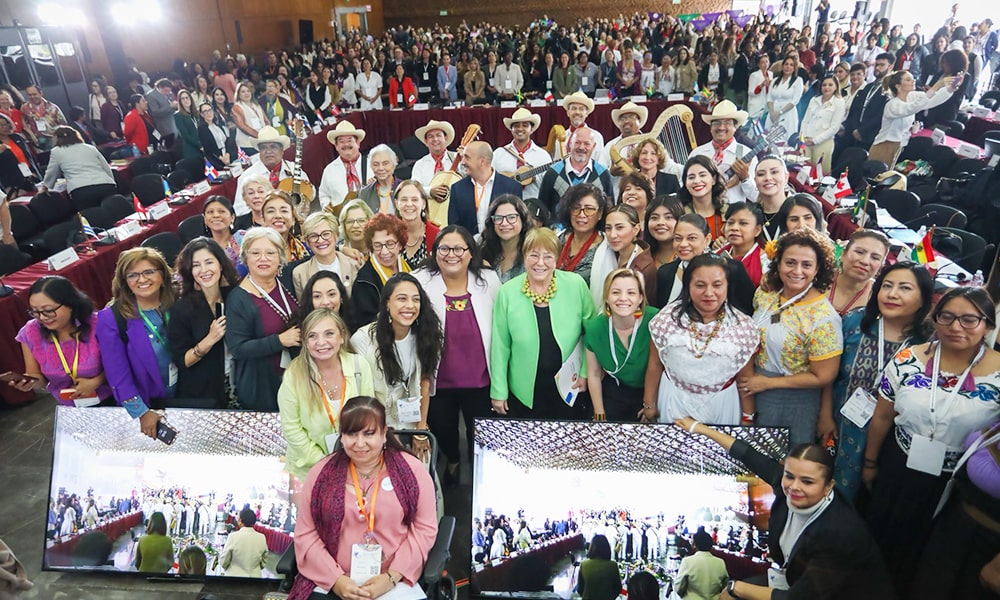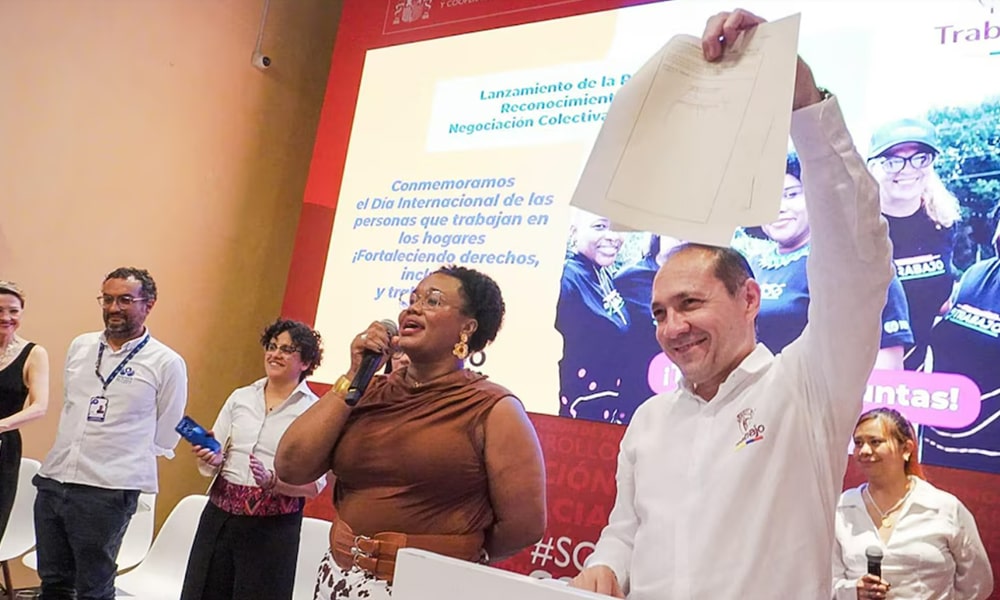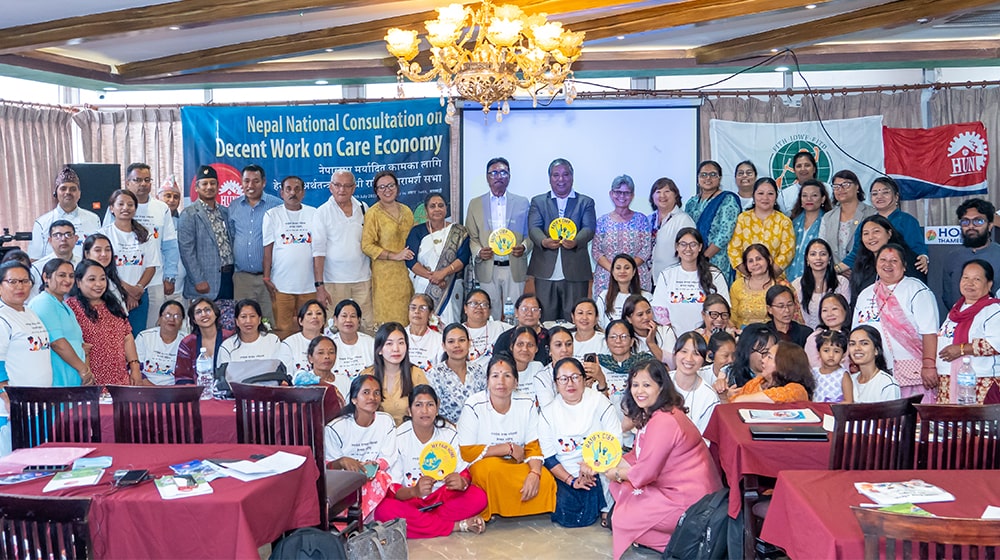
A delegation from the International Domestic Workers’ Federation (IDWF) will visit Honduras in the coming days to promote the ratification of ILO Convention 189. Through different activities and strategic meetings with decision makers, the organization that represents more than 670 thousand domestic workers around the world seeks that the Honduran state adopt urgent measures to put an end to the violation of labor and human rights of the more than 135 thousand people who are engaged in paid domestic work in the country.
Given the persistent situation of labor precariousness and violation of rights affecting domestic workers in Honduras, the International Domestic Workers’ Federation (IDWF) – and its affiliated organization SINTRAHO – will develop a series of awareness-raising and advocacy activities aimed at promoting the ratification of ILO Convention 189 by the Honduran government.
On Friday, February 16, the Forum “Ratification of ILO Convention 189 and domestic workers’ rights” will be held, with the presence of Ruth Díaz, regional representative and member of the Executive Committee of the International Domestic Workers’ Federation, SINTRAHO leaders, ILO experts, Congresswoman Silvia Ayala, officials from the Ministry of Labor and Joel Almendarez, Secretary General of the United Confederation of Honduran Workers. From February 17-20, the intense agenda of the IDWF team and SINTRAHO leaders includes strategic meetings with legislators, officials from different governmental bodies, and the Minister of Women, Doris García Paredes, as well as training workshops for domestic workers.
According to the ILO, more than 135,000 people are paid domestic workers in Honduras, 87% of whom are women. Most of them are their family’s breadwinners. Even though they represent 8.4% of female employment in the country and contribute substantially to sustaining the economy, these workers face extremely precarious working and living conditions. Of these workers, 96.3% do not have access to social security, health services, and pension rights. Only 3.5% earn the minimum wage, while the rest earn barely half the average income of other workers. In addition, 51.3% of these women endure strenuous working hours that exceed 48 hours per week.
In Honduras, domestic work is not regulated, with no legally established minimum wage. The Labor Code does not require a signed contract, allowing employers to deny workers the right to vacations, holidays, and breaks. The absence of a legal protection framework also encourages violence, harassment, and discriminatory treatment of women who find domestic work the only entry point to the labor market. Instead, they often end up trapped in situations that perpetuate the poverty and vulnerability of these women and their families.
ILO Convention 189 (adopted in June 2011) establishes basic standards to promote decent work for domestic workers. Honduras has not yet ratified C189. In Latin America, the continent that leads the ranking of ratifications of C189, 18 countries have adopted this binding international instrument that requires states to equalize the rights of domestic workers with those of other workers. Ratifying C189 means recognizing social and economic value in paid domestic work and dignifying those who perform it. “Domestic work is one of the activities that move the economy of this country; thanks to our work, many people can develop in the labor and academic fields,” says Silma Pérez, President of SINTRAHO. Today, Xiomara Castro’s government has the power to make visible the women who care for society and move the Honduran economy. Social justice for domestic workers can no longer wait.

